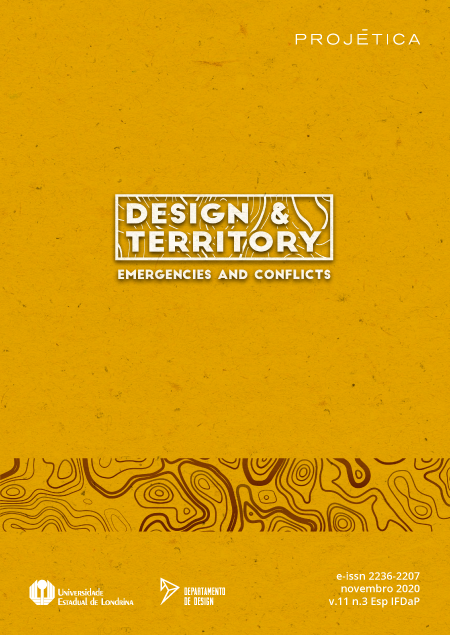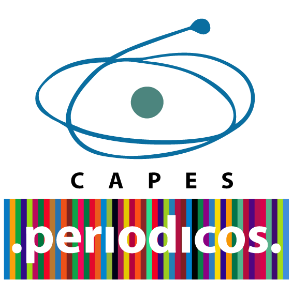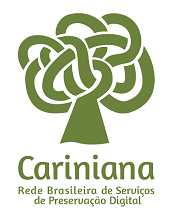Designing at the service of rural territory
DOI:
https://doi.org/10.5433/2236-2207.2020v11n3esp.p22Palabras clave:
Food Design, Service Design, Food Banks, Agricultural Surpluses, Circular EconomyResumen
This article provides the results of the final project developed to obtain the title as Industrial Designers of the National University of Colombia in Bogota. As designers we have found an opportunity to solve Service Design issues related to food waste while working hand in hand with the Archdiocesan Food Bank of Bogotá, which was founded eighteen years ago with the aim to join the academy thus private and public sector, with non-profit organizations that serve to vulnerable populations by collecting, selecting and distributing food, goods and services, donated or purchased. We believe organizations like these have a huge potential to guarantee food security for the Colombian population by reducing waste and reaching quality food to those in need. That's why as a result for this project we have developed ideas of improvement to be implemented on the actual service of PREA ("Programa de Recolección de Excedentes Agrícolas", Collection of Agricultural Surpluses Program), one of many the programs that belongs to the Food Bank previously mentioned. During the whole process we have realized that through design there are many possibilities to make these services and programs more "usable", simple and replicable. The full implementation of this project could create new bridges between stakeholders of the food industry and food banks, so they would all be involved on a circular and sustainable economy. The design process includes research, co-creation with the food bank team, use of creative tools and many field work days. This project not only consists of a diagnose of the major areas of weakness of the service, but also provides a guide portrayed in a blueprint, to improve specific areas of the service and highlight the phases that require more attention from the bank directors.Descargas
Citas
CALDENTEY, Pedro Albert; DE HARO GIMÉNEZ, Tomás. Comercialización de productos agrarios. Madrid, España: Editorial Agrícola Española, 2004.
CALDENTEY, Pedro Albert; GÓMEZ Y MUÑOZ, Ana Cristina. Economía de los mercados agrarios. Madrid, España: Mundi Prensa Libros, 1993.
CÁMARA DE COMERCIO DE BOGOTÁ. Desperdicio de alimentos, una realidad presente en Colombia. Bogotá: CCB, 2016. Available in: https://www.ccb.org. co/Sala-de-prensa/Noticias-sector-Agricola-y-Agroindustrial/Noticias-2016/ Desperdicio-de-alimentos-una-realidad-presente-en-Colombia. Access in: 10 Jul. 2019.
COSCIA, Adolfo. Comercialización de productos agropecuarios. 1978. Available in: https://www.eltransformador.org/Fesbal. Access in: 12 Apr. 2004.
FEDERACIÓN ESPAÑOLA DE BANCOS DE ALIMENTOS. Available in: https:// www.eltransformador.org/Fesbal. Access in: 12 Apr. 2004.
GASTRONOMÍA sostenible. Promoviendo buenas prácticas de producción y consumo sostenible para prevenir el desperdicio de alimentos y reducir la generación de residuos sólidos. Bogotá: MinAmbiente, 2016. Proyecto UNDA: Desarrollo e implementación de un proyecto de demostración de gestión integral de residuos en los sub-sectores de elaboración de comidas y platôs preparados en la ciudad de Bogotá. Available in: http://www.minambiente.gov.co/images/AsuntosambientalesySectorialyUrbana/pdf/seguridad_ alimentaria_/Gastronomia_Sostenible_-_PNUMA.PDF. Access in: 10 Jul. 2019
IDEO. Design kit IDEO. Avaiable in: http://www.designkit.org/. Access in: 10 Jul. 2019.
MELGAR-QUIÑONEZ, Hugo. La importancia de la información sobre la seguridad alimentaria para la toma de decisiones en la lucha contra el hambre. In: ASAMBLEA PLENARIA - AP 10, 10., 2013, San José, Costa Rica. Grupo de Trabajo GT2 […].San José: ParlAmericas, 2013. GT2 - Seguridad alimentaria. Tema: Desenvolvimiento Económico. Available in: https://www. parlamericas.org/uploads/documents/Article%20-%20Hugo%20Melgar%20 -%20SPA.pdf/. Access in: 10 Jul. 2019.
ORGANIZACIÓN DE LAS NACIONES UNIDAS PARA LA ALIMENTACIÓN Y LA AGRICULTURA. Colombia en una mirada. Colombia: FAO, 2019. Available in: http://www.fao.org/colombia/fao-en-colombia/colombia-en-una-mirada/ es/. Access in: 10 Jul. 2019.
PROGRAMA DE LAS NACIONES UNIDAS PARA EL DESARROLLO. Objetivos de Desarrollo Sostenible. 2019. Available in: http://www.undp.org/content/ undp/es/home/sustainable-development-goals.html. Access in: 10 Jul. 2019.
REDACCIÓN VIDA. Cuatro de cada diez personas en el país están mal alimentadas. El Tiempo, Bogotá, 15 febr. 2016. Archivo. Notitle. Available in: https://www.eltiempo.com/archivo/documento/CMS-16511172. Access in: 10 Jul. 2019.
Descargas
Publicado
Cómo citar
Número
Sección
Licencia
Derechos de autor 2020 Projetica

Esta obra está bajo una licencia internacional Creative Commons Atribución 4.0.
Projética está licenciada sob a Creative Commons Attribution CC-BY 4.0 International. Os autores detém os direitos autorais e concedem à revista o direito de exclusividade de primeira publicação.
Os autores dos trabalhos aprovados autorizam Projética a, após a publicação, ceder seu conteúdo para reprodução em indexadores de conteúdo, bibliotecas virtuais e similares.
Os autores assumem que os textos submetidos à publicação são de sua criação original, responsabilizando-se inteiramente por seu conteúdo em caso de eventual impugnação por parte de terceiros. As opiniões emitidas pelos autores dos artigos são de sua exclusiva responsabilidade.
A revista se reserva o direito de efetuar, nos originais, alterações de ordem normativa, ortográfica e gramatical, com vistas a manter o padrão culto da língua e a credibilidade do veículo. Respeitará, no entanto, o estilo de escrever dos autores. Alterações, correções ou sugestões de ordem conceitual serão encaminhadas aos autores, quando necessário. Nesses casos, os artigos, depois de adequados, deverão ser submetidos a nova apreciação. As provas finais não serão encaminhadas aos autores.












